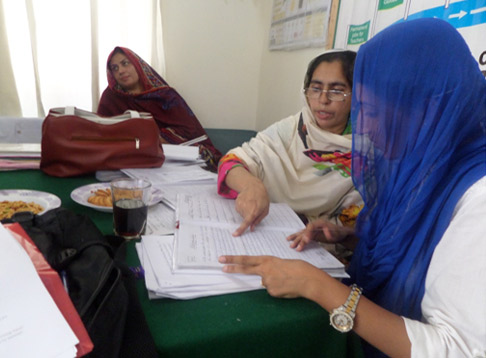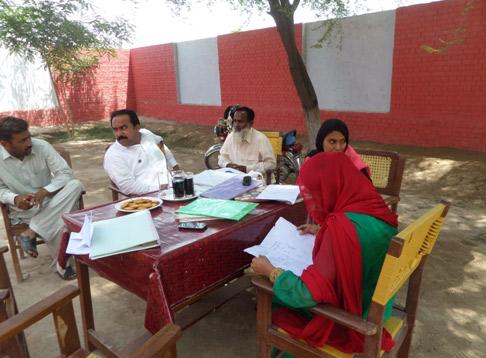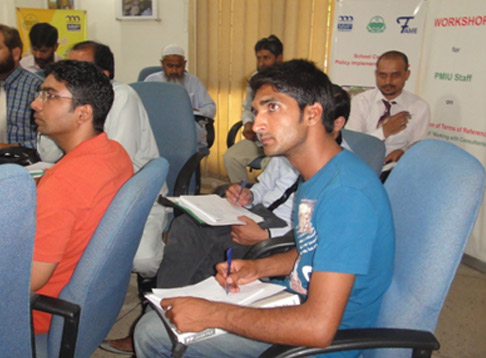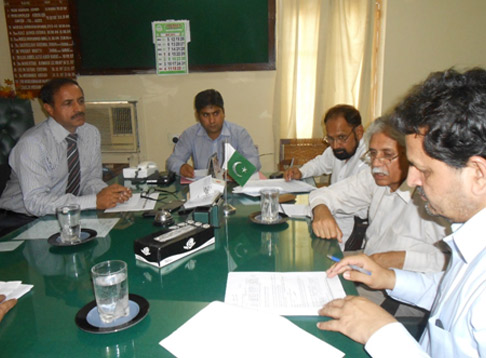Through the Programme Monitoring Implementation Unit (PMIU) the SED, Punjab developed a school-specific formula for non-salary budgets. The formula is a new way of allocating non-salary funding to all government schools based on specific school- and student-level characteristics. This is the start of the transition away from Normative Financing to Per Capita Financing. The Finance Department approved Rs. 3.5 billion for the NSB scheme in FY13/14; and this amount covered primary, elementary, high and higher secondary schools’ entitlements (derived by the formula) in the 9 pilot districts NSB is being provided to cover the non-salary related recurrent costs of schools. It is to be used by schools to spend on everyday expenditure for the general upkeep and functioning of the school and to support student learning e.g. office supplies, sports equipment, electricity, cleaning, teaching and learning materials, furniture and practical subjects.
All governments schools (from primary to higher secondary schools) receive school specific, needs-based funding to spend on any items which they professionally feel will improve the teaching and learning process. Primary/elementary schools receive funds in newly opened dedicated school bank accounts. Secondary schools use the existing public financial management system. The NSB scheme is being rolled out in phases: phase one began in FY2013/14 where 9 districts (Muzaffargarh, Nankana, Okara, R.Y.Khan, Sargodha, Sialkot, Chakwal, Chiniot and Khanewal) received a total of PKR 3.5 billion; phase 2 in FY 2014/15 enrolled another 9 districts; the final phase will include the remaining districts in FY 2015/16 into the scheme.
An expenditure review was conducted to: a) monitor compliance of the implementation of the NSB scheme with the objectives of the scheme; b) assess effects of the implementation of the NSB scheme on primary and elementary schools up to mid-June 2014; and C) provide a basis for proposing improvements in the way subsequent phases of the NSB roll-out are implemented. Semi-structured interviews were conducted with officials working on the disbursement process at the Punjab School Education Department and in the 9 pilot districts (Muzaffargarh, Nankana, Okara, R.Y.Khan, Sargodha, Sialkot, Chakwal, Chiniot and Khanewal) in a sample of schools. These included DDF (PMIU), Finance department, SED, DCO, EDO-E/F&P (district), District Account Office, DEO, DDEO, AEO and head teachers. Data collection for the NSB expenditure review was made in 400 schools of the 9 districts. Total respondents were 1372.The data was compiled into the CVS format for further analysis.




